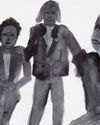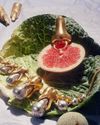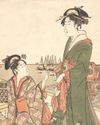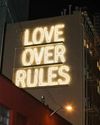
CALL IT A SIGN of the times: Korean skincare brands Dr. Jart+ and Peach & Lily offer collections of “maskne essentials” on their websites. Patch purveyor Hero Cosmetics recently posted an entry about maskne on its blog. But don’t dismiss maskne — acne and irritation from wearing a mask — as just another portmanteau to market skincare products.
“Oh, it’s a real thing,” said Dr. Mona Gohara, an associate clinical professor of dermatology at Yale School of Medicine. She herself has gotten maskne from her three layers of masks: a KN95 (similar to an N95) topped with a surgical mask to keep it clean, plus a face shield for procedures.
“Oh, my God, you can just feel things forming with the oil and sweat swishing around,” Gohara said.
Maskne — the most common kind is acne mechanica, aka the type of acne a football player may get where the helmet rubs — is also enough of a thing that the COVID-19 task force of the American Academy of Dermatology felt compelled to release advice on the subject.
Front-line workers in health care and other fields are most at risk because their masks are tighter fitting and they are wearing them longer. A research letter published in The Journal of the American Academy of Dermatology reported that at least 83 per cent of health care workers in Hubei, China, suffered skin problems on the face. And anecdotally, doctors report an increase in acne flare-ups in people outside health care as well.
“Conversations about acne have hit a record high in my practice and in my direct message box on Instagram,” Dr. Whitney Bowe, a dermatologist in New York City said in an email. That’s because masks can worsen existing skin issues or cause new ones. Add the summer heat and humidity and you’ve got a petri dish for breakouts.
This story is from the August 2020 edition of T Singapore: The New York Times Style Magazine.
Start your 7-day Magzter GOLD free trial to access thousands of curated premium stories, and 9,000+ magazines and newspapers.
Already a subscriber ? Sign In
This story is from the August 2020 edition of T Singapore: The New York Times Style Magazine.
Start your 7-day Magzter GOLD free trial to access thousands of curated premium stories, and 9,000+ magazines and newspapers.
Already a subscriber? Sign In

Look At Us
As public memorials face a public reckoning, there’s still too little thought paid to how women are represented — as bodies and as selves.

Two New Jewellery Collections Find Their Inspiration In The Human Anatomy
Two new jewellery collections find their inspiration in the human anatomy.

She For She
We speak to three women in Singapore who are trying to improve the lives of women — and all other gender identities — through their work.
Over The Rainbow
How the bright colours and lively prints created by illustrator Donald Robertson brought the latest Weekend Max Mara Flutterflies capsule collection to life.

What Is Love?
The artist Hank Willis Thomas discusses his partnership with the Japanese fashion label Sacai and the idea of fashion in the context of the art world.

The Luxury Hotel For New Mums
Singapore’s first luxury confinement facility, Kai Suites, aims to provide much more than plush beds and 24-hour infant care: It wants to help mothers with their mental and emotional wellbeing as well.

Who Gets To Eat?
As recent food movements have focused on buying local or organic, a deeper and different conversation is happening among America’s food activists: one that demands not just better meals for everyone but a dismantling of the structures that have failed to nourish us all along.

Reimagining The Future Of Fashion
What do women want from their clothes and accessories, and does luxury still have a place in this post-pandemic era? The iconic designer Alber Elbaz thinks he has the answers with his new label, AZ Factory.

A Holiday At Home
Once seen as the less exciting alternative to an exotic destination holiday, the staycation takes on new importance.
All Dressed Up, Nowhere To Go
Chinese supermodel He Sui talks about the unseen pressures of being an international star, being a trailblazer for East Asian models in the fashion world, and why, at the end of the day, she is content with being known as just a regular girl from Wenzhou.